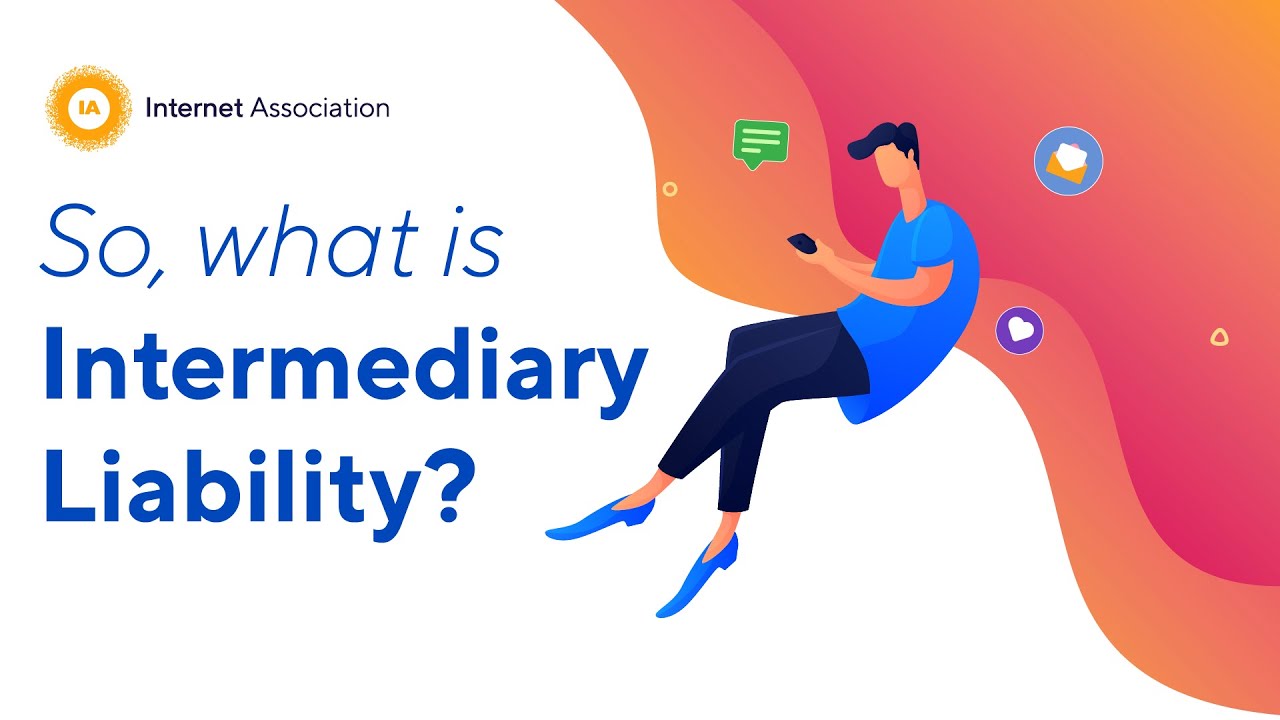
Image Source- Google
According to Section 2(w) of the Information Technology Act, 2000, the “intermediary”, with respect to any particular electronic records, means any person who on behalf of another person receives, stores, or transmits that record or provides any service with respect to that record and includes telecom service providers, network service providers, internet service providers, web service providers, search engines, online payment sites, online auction sites, online market places and cybercafes. The addition of the terms of telecom service providers, network service providers, internet service providers, search engines, online payment sites, online auction sites, online market places and cybercafes, has served as clarification to the definition of intermediary.
While intermediaries have an essential role to play in the receipt, storage and transmission of electronic messages and content, the regulation of their role is a part of the legislation enacted by most of the major jurisdictions around the World. While intermediaries enable the provision of online services to users, they also play an important role in the exercise of the right to freedom of expression. The right to freedom of expression is a fundamental right guaranteed to citizens under Article 19(1)(a).
Content that displays-
material against the interest of sovereignty and integrity of India,
material against the security of India,
material against friendly relations with a foreign state,
material against public order, material that is obscene, and against public decency and morality,
Defamation of a person, or
was capable of incitement of an offence,falls within the reasonable restrictions on the exercise of the right to
freedom. Such reasonable restrictions fall under the purview of Article 19(2) of the Indian Constitution.
To counter access to such forbidden information, the Government has the power to block access to such information under Section 69A of the Information Technology Act, 2000. The section was introduced through the major amendment of 2008. Under Section 69A of the Information Technology Act, 2000, if the Government issues directions for the blocking of public access to information through any computer resource that display characteristics of being against public order, morality, against the interests of sovereignty and integrity etc., the intermediary has to comply. If he does not comply with the order, he is punishable with imprisonment which may extend to seven years and with a fine.
This section was upheld in Shreya Singhal vs Union of India, 2015 , by the Honourable Supreme Court of India which held that the provision was constitutionally valid. The reason the words “issues directions” is italicized and in bold in the previous paragraph is due to the provision of Section 79 subject to the provision of Section 79(3)(b) of the Information Technology act, 2000.
In the landmark case mentioned above, the Supreme Court read down the provision of Section 79 and Rule 3(4) of the Intermediaries Guidelines, 2011, stating that- “ Section 79 is valid subject to Section 79(3)(b) being read down to mean that an intermediary upon receiving actual knowledge from a court order or on being notified by the appropriate government or its agency that unlawful acts relatable to Article 19(2) are going to be committed then fails to expeditiously remove or disable access to such material.” Similarly, the Information Technology Intermediary Guidelines Rules, 2011 are valid subject to Rule 3 sub-rule (4) being read down in the same manner as indicated in the judgment.”
Hence, the liability of an intermediary will be decided by taking all the above mentioned provisions into consideration.
Article By- Vignesh Ganesh
Editing By- Jasleen Kaur
This article will help to know what actually the liability is playing role in the IT act .